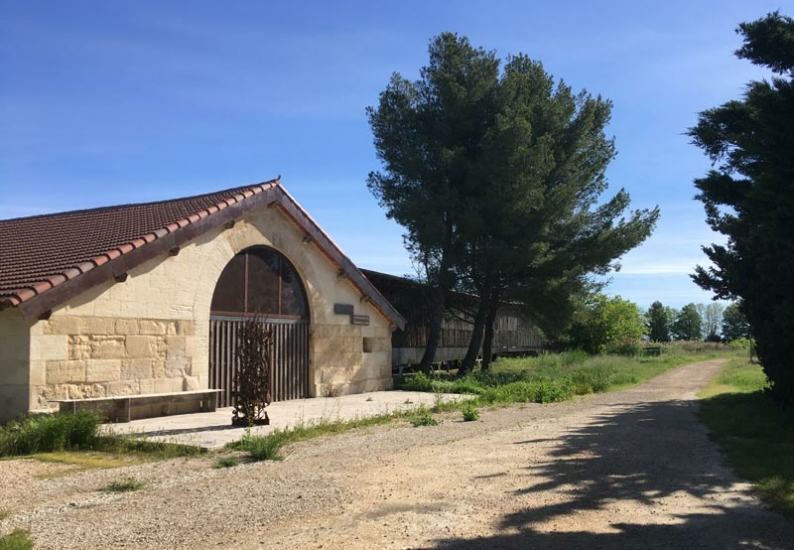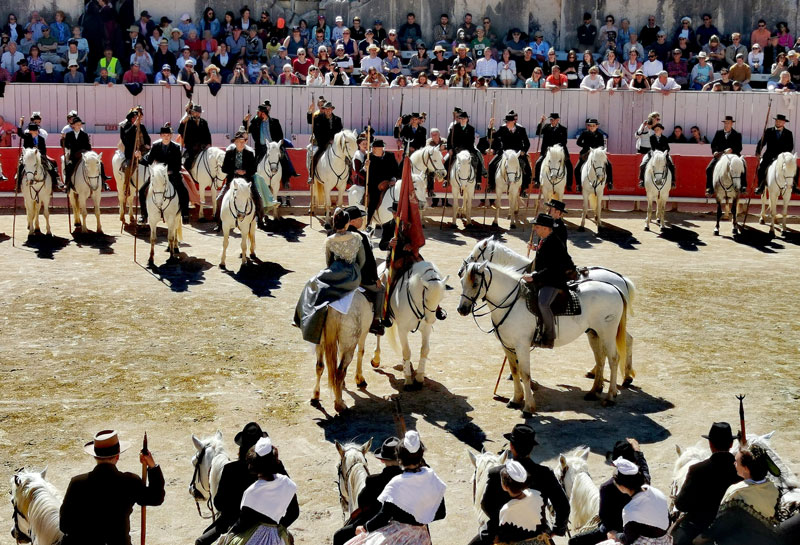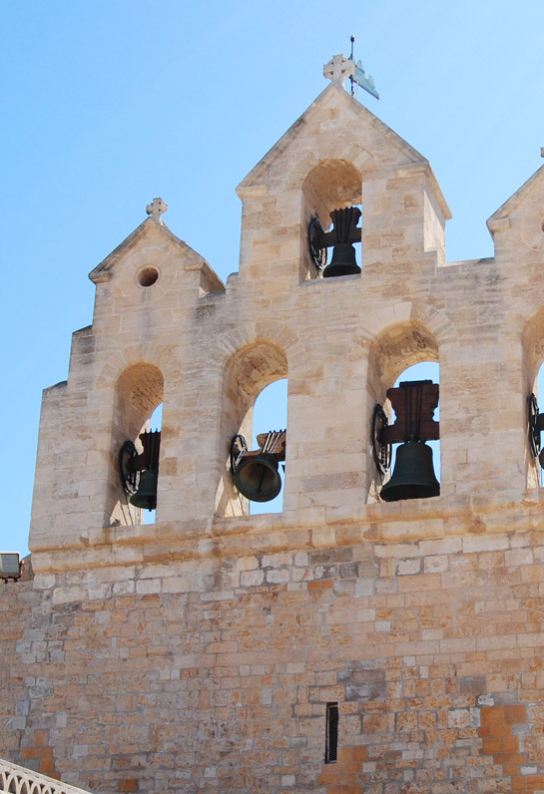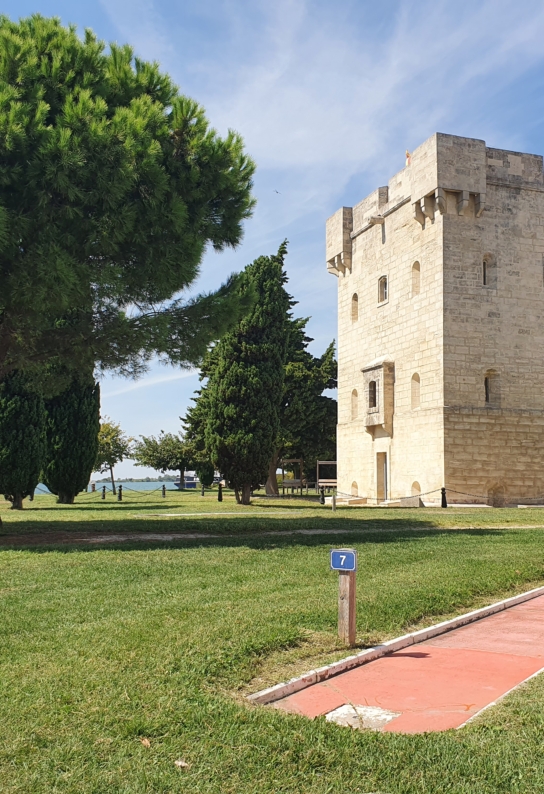Capital of the Camargue and flagship city of Provence, Arles was also called Rome of the Gauls in the Renaissance. The city is full of architectural treasures and is bustling with an intense cultural life. Founded in 46 BCE by Julius Caesar under the name of Arelate, the ancient Roman city has preserved the remains of its prestigious past. The historical center reveals an atmosphere both simple and refined, elegant and popular to its visitors. It is particularly pleasant to stroll through the city which continues to inspire artists and creators.
But Arles is not limited to its town center : beyond the suburbs, it is a life-size experience
Amazing moments in Arles
The legacy of history
Not only a former metropolis of the Roman Gaul, the city also carries the remains of a radiant Christian past. From the arena to the ancient theater, Arles unveils its architectural treasures protected by the UNESCO World Heritage Site label: the Saint Trophisme primate church, the Montmajour abbey, the antique theater, the baths of Constantine, the Alyscamps necropolis, the Roman circus…
Among those sites, visiting the arena is a must. It’s an amphitheater modeled on the Colosseum of Rome with room for up to 20,000 people. Even today, the arena comes to life with a cheering public attending the ferias, concerts or shows at the heart of this historic monument.
In Roman times
A visit to the Musée départemental Arles antique allows to better understand the growth of the Roman city: a captivating and educational scenography with 1,800 objects reveals the secrets of the millennial city, including a 31-meter Gallo-Roman barge (boat) and the famous bust of Julius Caesar, both discovered in the River Rhône.
Travel back in time by booking a guided and animated tour for the whole family at different historical sites. Become an adventurer of time by attending the fights of the gladiators or even trying it out yourself (age 13+).
A rich and lively culture
At the bend of an alley bathed in sun you may cross the Reine d’Arles on her Camargue horse. For over a century, the inhabitants of Arles have elected their queen every 3 years during the Fête des gardians and enthroned her during the very popular Bal de la Reine. Every young queen reigns over the Pays d’Arles and defends its history, its traditions and its language, the provençal, so dear to Frédéric Mistral. He was a poet, Nobel Prize winner in literature and great defender of Provençal culture founded the Museon Arlaten at the end of the 19th century. A jewel of Provençal culture, it houses nearly 40,000 collector’s items showcasing the life of people of Provence and their traditions which are still very much alive today. The Fête des gardians, the rice ferias in September and Easter, the Pegoulado and the costume festival mark the different seasons of the year.

The Camargue Museum for nature lovers
Outside the Museum, a great piece by the artist Tadashi Kawamata catches the visitor’s eye: a wooden observatory inspired by Noah’s ark that visitors are invited to climb to better understand the water issues in the Rhône Delta.
Arles inspires artists
Far from having sat back on its prestigious past, the city has always attracted many artists. Arles, the Crau, the Alpilles and the Camargue are an inexhaustible source of inspiration: Van Gogh, Picasso, Cocteau, the photographer Lucien Clergue – founder of the Rencontres d’Arles – or Christian Lacroix… they all loved this city and contemporary artists continue to do so as well.
Vincent Van Gogh
Seduced by its light and colors, Vincent Van Gogh lived in Arles for 15 months where he made about 300 drawings and paintings. Following the marked path “In the footsteps of Vincent Van Gogh” you will discover the locations where the artist had placed his easel. At the Léautaud de Donines house, the Vincent van Gogh Foundation showcases his work and undeniable influence in contemporary art.
The Musée Réattu
Housed in the former Grand Priory of the Order of Malta, the Musée Reattu pays tribute to the fine arts. Built in the bend of the Grand Rhône, the imposing construction is the setting of collections celebrating modern and contemporary art: paintings, sculptures, photographs, sound art. In 1971, two years before his death, Picasso sealed his attachment to Arles by offering the museum a carefully selected set of fifty-seven paintings.
Luma Arles
Designed by the art collector and sponsor Maja Hoffmann, Luma Arles stretches over an 11-hectare park close to the historical center. In the sculptural tower of 56 meters height designed by the architect Frank Gehry, one can see walls of crystallized salts. A fascinating way to promote this emblematic resource of the Camargue. Since its opening, the Luma Arles tower has been a true beacon of contemporary art with a program able to compete with important international foundations.
Lee Ufan
Close to the arena, another foundation makes the news. The Korean artist Lee Ufan and master of minimalism, seduced by Arles after having exhibited there in 2013, decided to open an exhibition center in the former Vernon townhouse. The artist presents his works and supports artistic initiatives which further enrich the cultural offer of the city.
Discover and enjoy Arles
Festivals : 5 arts all over the town
Photography and visual arts, music, dance, theater, history… many events punctuate the year, especially the summer.
Les Rencontres d’Arles
Photography Festival – July to september
Present in all parts of the city throughout the summer, the festival is the meeting place for photo enthusiasts and a witness of contemporary creation.
The city also hosts the Ecole nationale supérieure de la photographie (ENSP).
Festival les Suds
World music festival – July
Every summer, for 7 days and 6 nights, from 10 o’clock in the morning to 4 o’clock at night, the event welcomes more than 50,000 festival-goers and hosts more than 80 concerts and musical meetings. The happening unfolds beyond the city, spreading in the Camargue.
FlamencA
Flamenco festival – August
Dance, music, singing, photography, poetry… this festival explores female flamenco in all forms.
Rice Festival
September
Every late summer, while the harvest is in full swing, Arles celebrates the rice production – a cereal which is at the heart of a strong economic activity. Neighborhood and town associations in Arles make colorful floats for the occasion, inspired by rice-growing, traditions and local life.
Ecotourism – Listening to the river
Sonor bike trail from Arles to Mas Thibert
Take the ViaRhôna and follow a 22 km discovery route including 12 sound stages. This stroll along the river invites you to discover the Rhône from a historical, sensorial, artistic and scientific angle… A soft and unusual way to explore the Camargue! Prepare your trip here.
Zoom
Arelate, Roman Days of Arles

Did you know that… ?
With 759 km², the district of Arles is the largest Commune in Metropolitan France. The countryside of Arles encompasses 11 hamlets which showcase the different faces of the Camargue. From the Middle Ages, this land was shaped by the military and religious orders of the Hospitallers and the Templars, later of the Order of Malta.
Some commanderies are still present in the Camargue landscape. Transformed into Mas (farmhouses) and manades, some of them invite you to live to the rhythm of the gardians, for a day or a longer stay.


